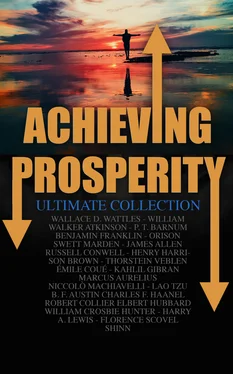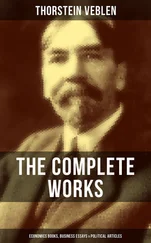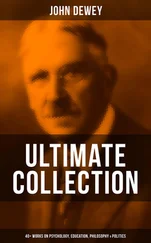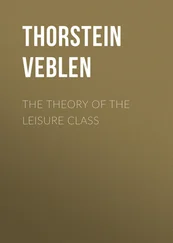I need only explain the modus operandi of effecting this illusion, to make apparent to the most ignorant that no supernatural agency was required to produce photographs bearing a resemblance to the persons whose “apparition” was desired. The photographer always took the precaution of inquiring about the deceased, his appearance and ordinary mode of wearing the hair. Then, selecting from countless old “negatives” the nearest resemblance, it was produced for the visitor, in dim, ghostlike outline differing so much from anything of the kind ever produced, that his customers seldom failed to recognize some lineament the dead person possessed when living, especially if such relative had deceased long since. The spectral illusions of Adams, Webster, Jackson, Clay, and Douglas were readily obtained from excellent portraits of the deceased statesmen, from which the scientific operator had prepared his illusions for Colorado Jewett.
In placing before my readers this incident of “Spiritual Photography,” I can assure them that the facts are substantially as related; and I am now in correspondence with gentlemen of wealth and position who have signified their willingness to support this statement by affidavits and other documents prepared for the purpose of opening the eyes of the people to the delusions daily practised upon the ignorant and superstitious.
Table of Contents
BANNER OF LIGHT.—MESSAGES FROM THE DEAD.—SPIRITUAL CIVILITIES.—SPIRIT “HOLLERING.”—HANS VON VLEET, THE FEMALE DUTCHMAN.—MRS. CONANT’S “CIRCLES.”—PAINE’S TABLE-TIPPING HUMBUG EXPOSED.
“The Banner of Light,” a weekly journal of romance, literature, and general intelligence, published in Boston, is the principal organ of spiritualism in this country. Its “general intelligence” is rather questionable, though there is no doubt about its being a “journal of romance,” strongly tinctured with humbug and imposture. It has a “Message Department,” the proprietors of the paper claiming that “each message in this department of the “Banner” was spoken by the spirit whose name it bears, through the instrumentality of Mrs. J. H. Conant, while in an abnormal condition called the trance.”
I give a few specimens of these “messages.” Thus, for instance, discourseth the Ghost of Lolley:
“How do? Don’t know me, do you? Know George Lolley? [Yes. How do you do?] I’m first rate. I’m dead; ain’t you afraid of me? You know I was familiar with those sort of things, so I wasn’t frightened to go.
“Well, won’t you say to the folks that I’m all right, and happy? that I didn’t suffer a great deal, had a pretty severe wound, got over that all right; went out from Petersburg. I was in the battle before Petersburg; got my discharge from there. Remember me kindly to Mr. Lord.
“Well, tell ‘em as soon as I get the wheels a little greased up and in running order I’ll come back with the good things, as I said I would, George W. Lolley. Good-bye.”
Immediately after a “message” from the spirit of John Morgan, the guerrilla, came one from Charles Talbot, who began as follows with a curious apostrophe to his predecessor:
“Hi-yah! old grisly. It’s lucky for you I didn’t get in ahead of you.
“I am Charlie Talbot, of Chambersburg, Pa. Was wounded in action, captured by the Rebels, and ‘died on their hands’ as they say of the horse.”
It seems a little rude for one “spirit” to term another “Old Grisly;” but such may be the style of compliment prevailing in the spirit-world.
Here is what Brother Klink said:
“John Klink, of the Twenty-fifth South Carolina. I want to open communication with Thomas Lefar, Charleston, S. C. I am deucedly ignorant about this coming back—dead railroad—business. It’s new business to me, as I suppose it will be to some of you when you travel this way. Say I will do the best I can to communicate with my friends, if they will give me an opportunity. I desire Mr. Lefar to send my letter to my family when he receives it—he knows where they are—and then report to this office.
“Good night, afternoon or morning, I don’t know which. I walked out at Petersburg.”
Here is a message from George W. Gage, with some of the questions which he answered:
“[How do you like your new home?] First rate. I likes—heigho!—I likes to come here, for they clears all the truck away before you get round, and fix up so you can talk right off. [Wasn’t you a medium?] No, Sir; I wasn’t afraid, though; nor my mother ain’t, either. Oh, I knew about it; I knew before I come to die, about it. My mother told me about it. I knew I’d be a woman when I come here, too. [Did you?] Yes, sir; my mother told me, and said I musn’t be afraid. Oh, I don’t likes that, but I likes to come.
“I forgot, Sir; my mother’s deaf, and always had to holler. That gentleman says folks ain’t deaf here.”
The observable points are first that he seems to have excused his “hollering” by the habits consequent upon his mother’s deafness. The “hollering” consisted of unusually heavy thumping, I suppose. But the second point is of far greater interest. George intimates that he has changed his “sect,” and become a woman! For this important alteration his good mother had prepared his mind. This style of thing will not seem so strange if we consider that some men become old women before they die!
Here is another case of feminification and restitution combined. Hans Von Vleet has become a vrow—what you may call a female Dutchman! It has always been claimed that women are purer and better than men; and accordingly we see that as soon as Hans became a woman he insisted on his widow’s returning to a Jew two thousand dollars that naughty Hans had “Christianed” the poor Hebrew out of. But let Hans tell his own story:
“I was Hans Von Vleet ven I vas here. I vas Von Vleet here; I is one vrow now. I is one vrow ven I comes back; I vas no vrow ven I vas here (alluding to the fact that he was temporarily occupying the form of our medium.) I wish you to know that I first live in Harlem, State of New York. Ven I vos here, I take something I had no right to take, something that no belongs to me. I takes something; I takes two thousand dollars that was no my own; that’s what I come back to say about. I first have some dealings with one Jew; that’s what you call him. He likes to Jew me, and I likes to Christian him. I belongs to the Dutch Reform Church. (Do you think you were a good member?) Vell, I vas. I believes in the creed; I takes the sacrament; I lives up to it outside. I no lives up to it inside, I suppose. (How do you find yourself now, Hans?) Vell, I finds myself—vell, I don’t know; I not feel very happy. Ven I comes to the spirit-land, I first meet that Jew’s brother, and he tells me, ‘Hans, you mus go back and makes some right with my brother.’ So I comes here.
“I vants my vrow, what I left in Harlem, to takes that two tousand dollars and gives it back to that Jew’s vrow. That’s what I came for to-day, Sir. (Has your vrow got it?) Vell, my vrow has got it in a tin box. Ven I first go, I takes the money, I gives it to my vrow, and she takes care of it. Now I vants my vrow to give that two tousand dollars to that Jew’s vrow.
“(How do you spell your name?) The vrow knows how to spell. (Hans Von Vleet.) There’s a something you cross in it. The vrow spells the rest. Ah, that’s wrong; you makes a blunder. Its V. not F. That’s like all vrows. (Do all vrows make blunders?) Vell, I don’t know; all do sometimes, I suppose. (Didn’t you like vrows here?) Oh, vell, I likes ‘em sometimes. I likes mine own vrow. I not likes to be a vrow myself. (Don’t the clothes fit?) Ah, vell, I suppose they fits, but I not likes to wear what not becomes me.”
Читать дальше












